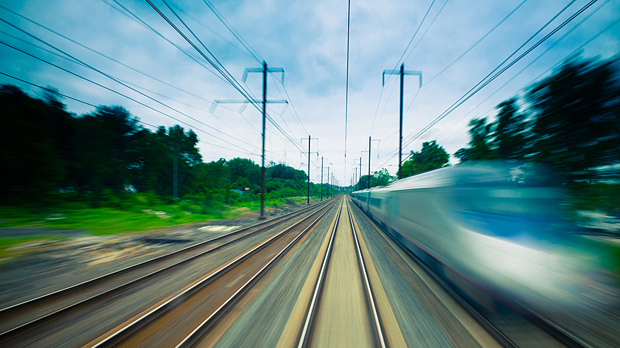HS2 high speed rail link set for green light
A government-commissioned report gives the clearest indication yet that the proposed £32 billion HS2 high-speed rail project will be given the go ahead.
The alternatives to the scheme that have been suggested would fail to deal with long-term overcrowding on trains, the report said.
The two alternative schemes, favoured by some of those opposed to the London-Birmingham HS2 plan, would also consign passengers to long periods of disruption.
Prepared for ministers by Network Rail (NR), the report suggests that Transport Secretary Justine Greening will give the green light to HS2 which passes through Tory heartlands in picturesque spots.
A decision on the project, which has sparked fierce and acrimonious debate with Conservative MPs among the anti brigade, is expected in the next few days, possibly as early as Tuesday.
HS2 envisages a high-speed line built initially between London and Birmingham, to be completed around 2026, with a second phase extending the line to north-east and north-west England by around 2032/33.
The NR report looked at two schemes which suggest a series of improvements to the existing West Coast Main Line (WCML).
The report also said that both schemes would result in long periods of heavy disruption for passengers while infrastructure work is undertaken, and would slow down the WCML’s fast lines and cause congestion.
Neither scheme would allow any growth in freight traffic and in some cases would leave stations with fewer or no train services; the report found.
Meanwhile, in the longer term, running the proposed number of additional services would have a significant and detrimental effect on the reliability of the network.
Cost ‘underestimated’
The report also found that while cost estimates for the schemes were “realistic”, factors such as remodelling work at Euston station in London had not been included and the cost of disruption had been underestimated.
The report concluded that the proposed schemes “deliver considerably fewer benefits than a new line” and that while they “may offer limited and short-term opportunities for improving capacity on some areas of the route, the requirement for a new line to relieve capacity in the longer term remains and therefore would have to be delivered, in addition to these proposals, in any case”.
A Department for Transport source said: “NR has carried out a sober and independent analysis of the alternative solutions to upgrading and future proofing our railways and concluded that patchwork upgrades to the existing rail network simply will not resolve the huge capacity challenges we face.
“Our plans for a new high-speed rail network would increase hugely the number of seats for passengers available on Britain’s inter-city railways as well as freeing up space on current railways for more trains to operate and all with minimal disruption to the existing railway.”
A Network Rail spokesman said: “The capacity case for a new high-speed line is clear. In just over a decade the WCML, Britain’s busiest and most economically vital rail artery, will be full with no more space to accommodate the predicted growth in demand.
“Alternative schemes to HS2 have been put forward which would deliver some short-term capacity benefits, but they would come at a heavy price in terms of disruption to passengers and the wider economy. They also leave many other issues unresolved and in some cases would result in stations with severely reduced services or no service at all.”
He went on: “Critically, none of the alternatives would solve the most pressing capacity constraint at the south end of the WCML, leaving commuters unable to board packed trains at the busiest times of day.
Lucy James from the Campaign for High Speed Rail said: “This report is just the latest piece of evidence to show that HS2 is the only game in town when it comes to solving the capacity crisis on Britain’s railways”.
